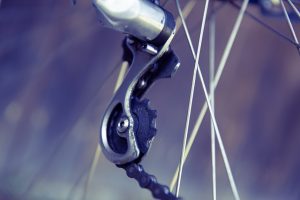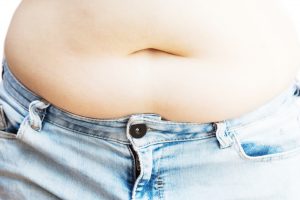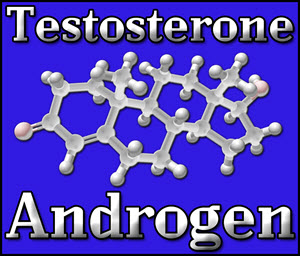
One of the common misconceptions about losing weight is that dieting is the best means by which to do it.
Most people also think that dieting is incredibly tricky. While it is true that many struggle with dieting, most people do lose weight when they go on a diet.
The problem is that, over time, willpower falls and people go back to their old, poor habits, regaining the weight that they lost successfully. So the biggest problem isn't losing weight for most individuals, it's maintaining and continuing weight loss. This is known as weight cycling.
Weight Cycling is defined as a series of periods of purposeful weight loss and accidental weight gain, generally caused by failed diet attempts.
Video Link: https://vimeo.com/290542466
Video Download: Click Here To Download Video
Video Stream: Click Here To Stream Video
One of the most frustrating aspects of weight cycling is that it can actually lead to weight gain! This is because the body stores fat more readily per calorie consumed when food becomes scarce. So while you lose weight during your diet, your body stores more fat per calorie.
When you give up on your diet or lose your resolve, most people start eating much like they did before they started the diet. This causes them to gain weight because their bodies are even more prone to store fat than they were at the start of the diet!

Beyond that, weight cycling also frequently makes it more difficult to lose weight in further attempts at dieting, because the body more stubbornly clings to those calories.
One of the most unfortunate issues with weight cycling is that the concept of “The Diet” itself is one of the primary causes of this repeating cycle of disappointments.
By rethinking how we eat, why we eat, and what it means to lose weight successfully, one can overcome the seemingly insurmountable barrier to healthy eating which is known as Weight Cycling.
Why Do Diets Fail?
The human body, through the course of its entire evolution, has developed some physiological strategies to stave off starvation and maximize caloric consumption.
This is because our ancestors had to regularly deal with the threat of famine and the reality of frequent food scarcity. In a world of food abundance, as we live in today, these strategies which once helped our ancestors outperform their peers now have a suppressive effect on physical health.
When you stop eating as much suddenly as you begin your diet, your brain responds as if the lack of food is the beginning of a period of scarcity. Your body responds to suddenly reduced caloric consumption by “tightening your belt,” so to speak.
responds to suddenly reduced caloric consumption by “tightening your belt,” so to speak.
It becomes more resourceful, decreasing your metabolism and increasing the rate at which you store body fat. This is one of the reasons why energy levels often plummet at the beginning of a diet.
The brain has a general idea of how much you eat and when you eat and relates this to energy stored as body fat to decide to encourage the secretion of hormones that stimulate appetite (primarily ghrelin) or hormones that suppress hunger (mainly leptin).
When you diet, this increases the amount of ghrelin that your body produces, which is the primary reason for the cravings and hunger pains caused by dieting.
 On the other hand, it also causes your body to produce leptin, the hormone associated with satiation, more sparingly, making it harder to get full.
On the other hand, it also causes your body to produce leptin, the hormone associated with satiation, more sparingly, making it harder to get full.
Scientific studies in recent decades have also shown that these hormones also affect the types of food that you crave.
When you are in a state of hunger and craving, you are more likely to be psychologically aroused by the idea of foods like sodas, candies, burgers, and other foods that are loaded with calories and light on nutrients.
The hormone that is directly responsible for this enhanced desire for unhealthy food is dopamine, the hormone that is most aptly described as the reward hormone.
When you do something that your brain likes (whether it's tasty and healthy for your body or not), your body releases dopamine to encourage you further to act on the desire in the future.
This is bad enough when your weight is stabilized, but when weight cycling, this also enhances the strength of ghrelin production which increases pleasure response even further.
Weight Cycling and Muscle Mass
Another issue that is related to weight cycling is that the body tends to burn muscle over fat during a crash diet. Your body wants to retain body fat for as long as possible when it feels threatened by food scarcity, and targets muscles first, leading to mild muscle atrophy.
as possible when it feels threatened by food scarcity, and targets muscles first, leading to mild muscle atrophy.
When you enter the weight gain portion of the crash diet cycle, your body likely has reduced muscle mass unless you've stuck to a fitness regimen and is even more prone to building fat before muscle.
Dangers of Weight Cycling
Individuals that crash diet, regularly gaining and losing weight, are at higher risk than their peers for some different conditions, some of which are potentially life-threatening.
Among these risks are gallbladder stones, high blood pressure, diabetes, and premature aging (due to telomere shortening among other causes). This is on top of the already intense repercussions associated with obesity, like increased risk of cancer, heart disease, and inflammation.
This only elevates the importance of choosing a health and wellness regimen that promotes awareness and body-consciousness.
How to Lose Weight the Right Way
You're probably wondering at this point how you can lose weight without dieting. The answer is to change the way that you think about food and make smart  changes that improve your eating habits without making changes so drastic that it becomes too complicated to maintain the diet.
changes that improve your eating habits without making changes so drastic that it becomes too complicated to maintain the diet.
Don't turn to fad diets; they are practically all overwhelming to the body or otherwise underwhelming. Understand that nutrient-dense foods drawn from a variety of plant and animal (or protein) sources, while limiting sugar and carbohydrate intake, will significantly boost your energy and your ability to lose weight without leaving you hungry and fatigued.
Contact Us Today For A Free Consultation

- Testosterone for Women [Last Updated On: December 1st, 2023] [Originally Added On: December 29th, 2013]
- Testosterone Androgen [Last Updated On: December 11th, 2023] [Originally Added On: December 29th, 2013]
- Testosterone and Body Building [Last Updated On: December 14th, 2023] [Originally Added On: December 30th, 2013]
- Testosterone Levels [Last Updated On: December 6th, 2023] [Originally Added On: December 31st, 2013]
- Testosterone Gel, Cream, and the Testosterone Patch [Last Updated On: November 28th, 2023] [Originally Added On: December 31st, 2013]
- Buy Testosterone | Types of Testosterone Replacement Therapy Programs, Injections, Cream and Gel [Last Updated On: December 13th, 2023] [Originally Added On: December 31st, 2013]
- Buy Testosterone Injections Online, Testosterone Prescription for Low T, Testosterone Replacement Therapy [Last Updated On: October 16th, 2020] [Originally Added On: January 1st, 2014]
- Aging and Testosterone Replacement Therapy [Last Updated On: December 12th, 2023] [Originally Added On: January 3rd, 2014]
- What Causes Low Testosterone [Last Updated On: December 10th, 2023] [Originally Added On: January 7th, 2014]
- Hormone Levels in Men [Last Updated On: December 4th, 2023] [Originally Added On: January 12th, 2014]
- Hormone Level Testing [Last Updated On: November 29th, 2023] [Originally Added On: January 13th, 2014]
- Types of Testosterone Products and Delivery [Last Updated On: December 8th, 2023] [Originally Added On: January 22nd, 2014]
- Testosterone Therapy Helps Men with Low-T Ward Off Prostate Cancer [Last Updated On: May 29th, 2024] [Originally Added On: December 29th, 2019]
- The Importance of Dietary Fat for Testosterone Production [Last Updated On: July 8th, 2024] [Originally Added On: January 2nd, 2020]
- Testosterone Deficiency and Low-T at Epidemic Levels Among Men in the United States [Last Updated On: May 27th, 2024] [Originally Added On: May 17th, 2020]
- The Effects of Testosterone Therapy on Male Patients -- Who Should Use Testosterone? [Last Updated On: December 20th, 2023] [Originally Added On: June 16th, 2020]
- Does Ibuprofen Contribute to Low Testosterone? [Last Updated On: January 27th, 2024] [Originally Added On: June 20th, 2020]
- The Link Between Testosterone and Lower Rates of Autoimmune Diseases Among Men [Last Updated On: January 30th, 2024] [Originally Added On: June 21st, 2020]
- Reexamining Bio-Identical Testosterone Therapy [Last Updated On: June 18th, 2024] [Originally Added On: August 12th, 2020]
- Understanding how Muscle and Fat Impact Body Mass, Weight, and Health [Last Updated On: April 15th, 2024] [Originally Added On: August 25th, 2020]
- The Role of Nitric Oxide in Cancer Proliferation And Prevention [Last Updated On: May 3rd, 2024] [Originally Added On: August 26th, 2020]
- Understanding Heartburn in the 21st Century [Last Updated On: April 24th, 2024] [Originally Added On: August 28th, 2020]
- What is Erectile Dysfunction? [Last Updated On: April 20th, 2024] [Originally Added On: August 30th, 2020]
- Sermorelin Acetate Drug Information [Last Updated On: April 7th, 2024] [Originally Added On: August 31st, 2020]
- Exercise and Mental Health [Last Updated On: April 5th, 2024] [Originally Added On: September 1st, 2020]
- The Importance of Proteins, Carbs, and Fats [Last Updated On: March 11th, 2024] [Originally Added On: September 2nd, 2020]
- Low-T Treatment Before and After -- How Testosterone Therapy Improves Vitality [Last Updated On: April 9th, 2024] [Originally Added On: September 6th, 2020]
- Changes to LabCorp Guidelines for Low-T Diagnosis and How They Impact Your Treatment [Last Updated On: July 14th, 2024] [Originally Added On: September 22nd, 2020]
- The Effects of Testosterone on Asthma Prevalence Among Men and Women [Last Updated On: February 19th, 2024] [Originally Added On: October 6th, 2020]
- 7 Exercises to Elevate Testosterone Levels [Last Updated On: June 13th, 2024] [Originally Added On: October 10th, 2020]
- Vitamin A is Essential for Good Health - Are You Getting Enough ? [Last Updated On: April 16th, 2024] [Originally Added On: October 14th, 2020]
- Testosterone and Diet – How to Support Testosterone Levels with Healthy Eating [Last Updated On: June 7th, 2024] [Originally Added On: October 29th, 2020]
- The Significance of Telomeres in Stem Cell Treatments [Last Updated On: March 16th, 2024] [Originally Added On: November 27th, 2020]
- The Influence of Testosterone on Protective Mating Behaviors in Men [Last Updated On: January 25th, 2024] [Originally Added On: December 6th, 2020]
- The Role of Testosterone in Women's Health [Last Updated On: December 24th, 2023] [Originally Added On: December 7th, 2020]
- Testosterone Promotes Bone Health and Can Help Treat Osteoporosis [Last Updated On: February 15th, 2024] [Originally Added On: December 17th, 2020]
- The Relationship Between Testosterone and Cortisol [Last Updated On: April 2nd, 2024] [Originally Added On: December 19th, 2020]
- The Importance of Sex Hormone-Binding Globulin (SHBG) for Healthy Testosterone Levels [Last Updated On: March 9th, 2024] [Originally Added On: December 28th, 2020]
- 12 Health Issues That Can Kill Libido and Limit Sexual Performance [Last Updated On: May 23rd, 2024] [Originally Added On: January 3rd, 2021]
- 4 Foods to Boost Your Testosterone Levels [Last Updated On: February 7th, 2024] [Originally Added On: January 4th, 2021]
- Low Testosterone Symptoms [Last Updated On: December 31st, 2023] [Originally Added On: January 7th, 2021]
- Is Male Menopause Real? The Science of Andropause [Last Updated On: January 15th, 2024] [Originally Added On: January 11th, 2021]
- Relieve Fatigue and Increase Energy with Testosterone Replacement Therapy [Last Updated On: January 16th, 2024] [Originally Added On: January 16th, 2021]
- How to Administer a Testosterone Injection -- Low-T Injection Guide [Last Updated On: February 28th, 2024] [Originally Added On: January 17th, 2021]
- Testosterone Levels Associated with Serotonin Activity in the Brain [Last Updated On: March 26th, 2024] [Originally Added On: January 19th, 2021]
- Grumpy Old Man Syndrome – Causes and Treatments [Last Updated On: June 8th, 2024] [Originally Added On: January 22nd, 2021]
- The Effects of Beer on Testosterone Production and Gynecomastia [Last Updated On: March 21st, 2024] [Originally Added On: January 30th, 2021]
- Testosterone Frequently Asked Questions [Last Updated On: February 6th, 2024] [Originally Added On: February 26th, 2021]
- Testosterone Supplements: Vitamin and Amino Acid Pills Versus Real Testosterone [Last Updated On: November 21st, 2024] [Originally Added On: March 1st, 2021]
- Testosterone Side Effects, Risks, Dangers and Negative Effects [Last Updated On: November 7th, 2024] [Originally Added On: March 2nd, 2021]
- Testosterone for Men [Last Updated On: February 20th, 2024] [Originally Added On: April 13th, 2021]
- Testosterone Testing [Last Updated On: November 9th, 2024] [Originally Added On: May 7th, 2021]
- Hormone Replacement Therapy: Commonly Asked Questions [Last Updated On: February 20th, 2024] [Originally Added On: June 16th, 2023]
Word Count: 1005




















